Namibia, a country in southwestern Africa, is a land of striking landscapes and diverse wildlife. With its vast deserts, rugged mountains, and abundant wildlife, it’s a destination that will leave you in awe.
I’ve spent almost a month in Namibia exploring its dramatic deserts, epic coastlines, and untamed wilderness. It’s one of the most beautiful, unique countries I’ve ever visited and a must for any nature lover or adventure seeker.
7 Reasons Why You Should Visit Namibia in 2024
From the iconic dunes of Sossusvlei and the haunting beauty of the Skeleton Coast to the incredible wildlife of Etosha National Park, there’s no shortage of natural wonders to discover here.
With its welcoming people, diverse landscapes, and awe-inspiring beauty, Namibia promises an unforgettable journey that will leave you yearning for more.
Here are seven reasons why Namibia should be on your travel bucket list for 2024.
1. Spectacular Desert Landscapes
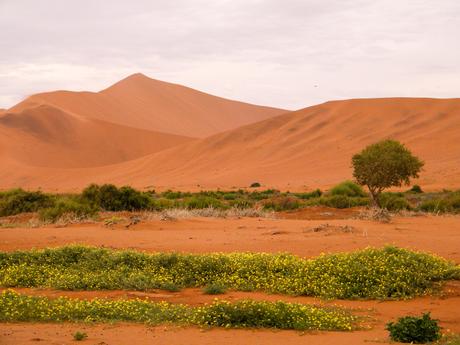
Namibia’s desolate beauty is otherworldly. Its vast deserts and towering dunes are both mesmerizing and incredibly inspiring.
Sossusvlei’s red dunes, some of the tallest and oldest in the world, are particularly spectacular during sunrise and sunset.
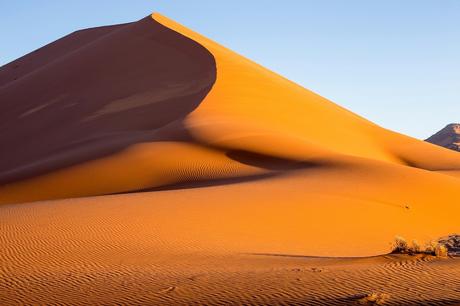
You’ll be left spellbound watching the colours change from deep red to burnt orange as the sky transitions from twilight to daybreak or nightfall.
Don’t miss the chance to explore the mysterious Skeleton Coast. Here, the desert abruptly gives way to the ocean.
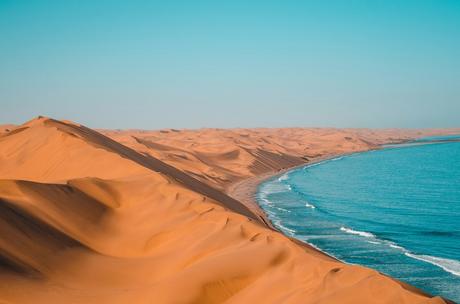
The harsh landscape, often swirling with sea mist, is dotted with shipwrecks and the skeletons of dolphins and whales.
These places all left powerful and lasting impressions on me, and I’d recommend them to anyone.
2. Rich Wildlife and Safaris
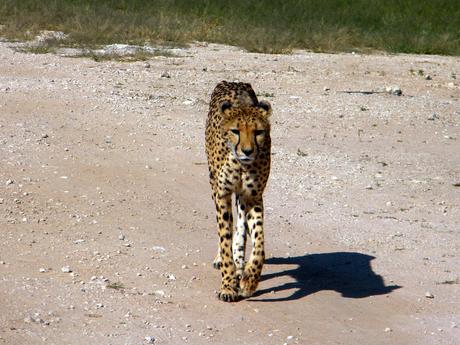
If safari conjures up images of the Serengeti’s grassy plains, prepare to be enchanted by Namibia’s unique offerings.
Damaraland’s scorched earth is home to elusive desert-dwelling elephants and critically endangered black rhinos.
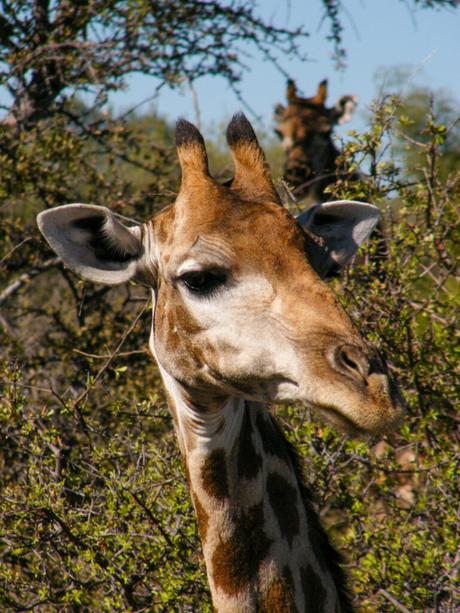
Etosha National Park, one of the largest in Africa, is home to an incredible variety of iconic African wildlife, including lions, leopards, cheetahs, elephants, zebras, rhinos, giraffes, and ostriches.
This amazing country offers some of the world’s best wildlife and safari experiences.
3. Diverse Cultural Experiences
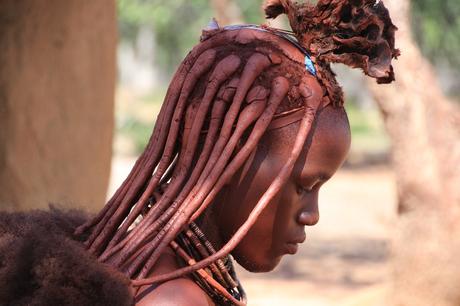
Namibia is a patchwork of peoples and traditions, with many different ethnic groups and languages spoken throughout the country. Here you’ll witness a rich and diverse tapestry of humanity.
The earliest inhabitants of Namibia were the San people, also known as Bushmen. They have lived in Namibia for over 30,000 years and are considered one of the oldest Indigenous populations in Africa.
You can visit remote Himba villages and learn about their semi-nomadic way of life. Or spend a night under the stars with the Nama people, sharing stories and experiencing their traditional music and dances.
4. Adventure Sports and Activities
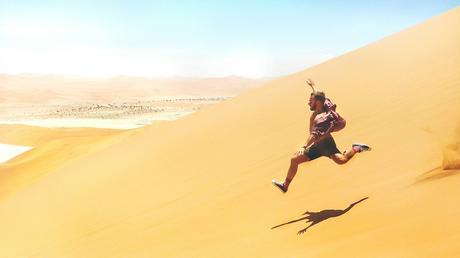
Namibia is a paradise for adrenaline junkies. Its vast and spectacular landscapes provide the perfect playground for a wide range of adventure activities.
You can skydive over the Namib desert, or try sandboarding down Sossusvlei’s towering dunes. Kayak with seals at Walvis Bay or quad-bike through the lunar-like expanse of the Swakop River Delta.
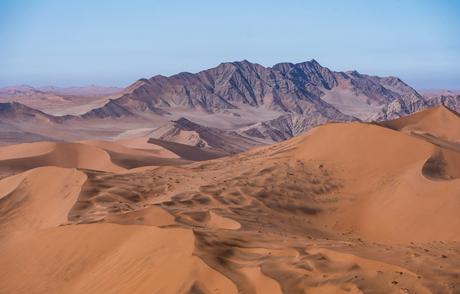
If you’re into hiking, don’t miss the epic 5-day hike through Fish River Canyon, otherwise known as the “Grand Canyon of Africa”.
It’s the second largest canyon in the world, over 27 kilometres wide, and half a kilometer deep.
5. Breathtaking Star Gazing
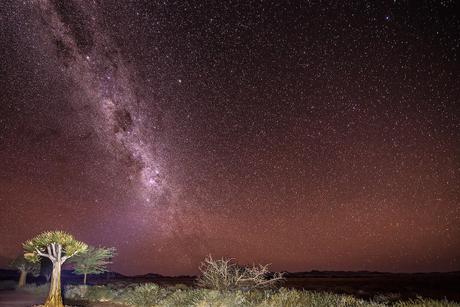
For most city dwellers, gazing at the stars twinkling in an ink-black sky is a forgotten luxury. In Namibia, under the unpolluted heavens, constellations blaze with an intensity you never thought possible.
The NamibRand Nature Reserve is Africa’s first international dark sky reserve. Immersed in darkness and free from light pollution, the vast expanse above unveils a mesmerizing tapestry of stars, constellations, and galaxies.
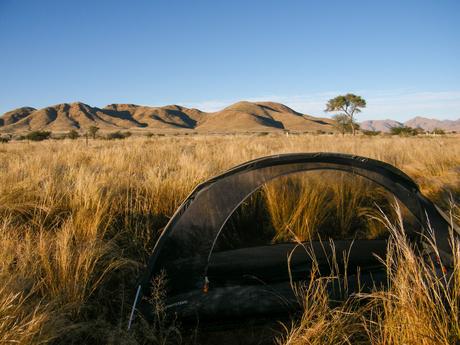
One of the best nights of camping I’ve ever done was at Spitzkoppe, in the Namib desert. The stars were so bright I lay awake watching them for hours, utterly transfixed.
Look out for shooting stars streaking across the heavens, as the universe puts on a captivating show. Immerse yourself in the glow of the Milky Way, and let the universe dwarf your earthly worries.
6. Ecotourism Opportunities
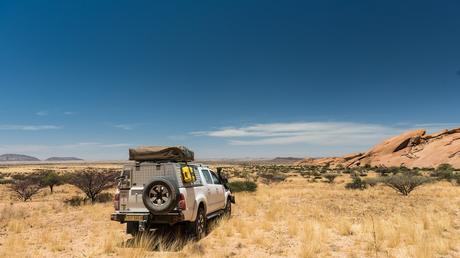
Namibia is a leader in Africa when it comes to ecotourism and conservation. It’s a great destination for anyone looking to explore nature’s beauty while supporting sustainable travel practices.
Ongava and Palmwag conservancies are at the forefront of community-led ecotourism, where your visit contributes directly to wildlife conservation and local community development.
You’ll find many other eco-lodges and campsites throughout the country that offer comfortable accommodations and convenient facilities.
These are usually designed to blend in with their natural surroundings and minimise their impact on the environment.
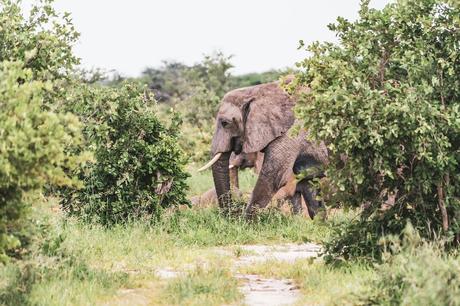
Eco-lodges often use renewable energy sources, such as solar power, wind power, or hydroelectric power, to reduce their reliance on non-renewable resources.
Many have recycling programmes and encourage guests to participate in conservation efforts during their stay.
They also often support local communities by hiring staff from nearby villages and sourcing food and materials from local suppliers.
7. Unique (and Photogenic) Geological Phenomena
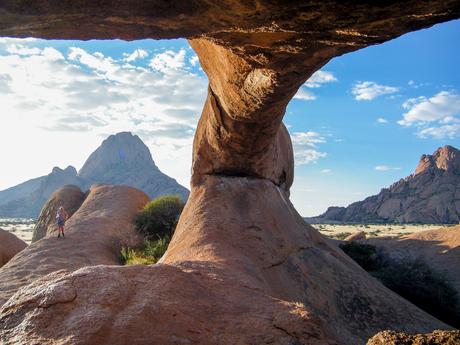
Namibia’s landscapes are epic in scale and beauty. This country is a treasure trove of unique and captivating natural formations.
The Fish River Canyon, the second largest in the world, is an incredible sight and every bit as impressive as its North American cousin.
Spitzkoppe’s towering granite peaks rise dramatically out of the desert and can be seen from miles away.
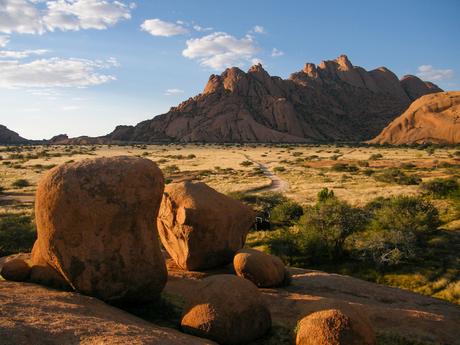
The ancient volcanic formation, also known as the “Matterhorn of Namibia,” is around 700 million years old and is considered sacred by the local San people.
And then we have the hauntingly beautiful Deadvlei. Its sun-bleached clay is punctured by the black petrified skeletons of 900-year-old camel thorn trees. It’s a surreal and otherworldly sight.
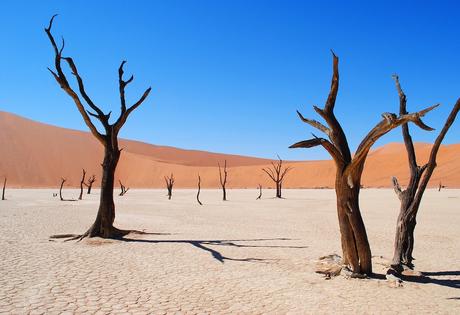
Final Thoughts
Namibia’s stark beauty and serene solitude had a profound effect on me. It’s one of the most incredible countries I’ve ever visited and offers a sense of vastness and freedom that’s hard to find anywhere else.
If you want to discover a wild and timeless land of adventure and uncompromising beauty, Namibia should be near the very top of your list.
Additional Information on Visiting Namibia
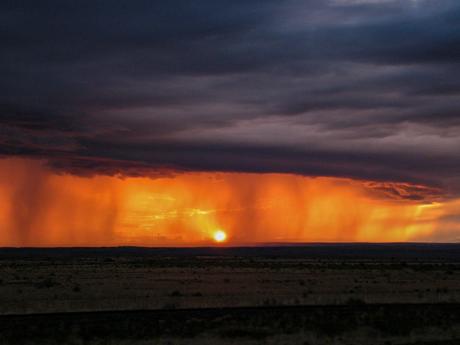
Namibia Travel Tips:
- Namibia is a fairly safe destination overall, but it’s important to take certain precautions to stay safe while exploring.
- The capital, Windhoek, has a relatively high crime rate. Be wary of your belongings here, and avoid walking by yourself at night.
- If you want to venture out into the desert, ensure that you are properly equipped and prepared. Bring plenty of water and a satellite phone.
- Consider renting a 4×4 vehicle, especially if you plan to explore remote areas like the Namib desert or Kaokoland. Roads can be challenging, but the freedom to roam is worth it.
- Be cautious around wildlife and always follow park regulations.
- While English is widely spoken, Namibians appreciate travellers who greet them in their native languages. Learning a few basic phrases in languages like Oshiwambo or Herero can go a long way.
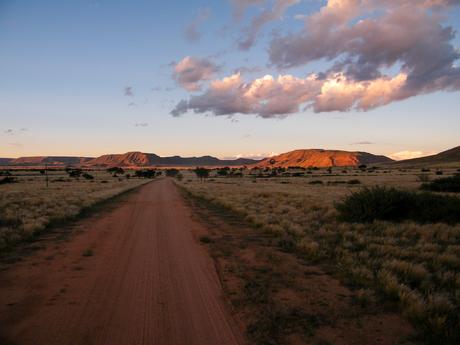
Best Time to Visit Namibia:
- The dry season runs from May to October and is excellent for wildlife viewing, especially in Etosha National Park.
- For desert landscapes and photography, the cooler winter months from June to October offer clear skies and comfortable temperatures.
- If you want to experience the lushness of the northern Caprivi region and its migratory birds, visit during the wet season from November to April.
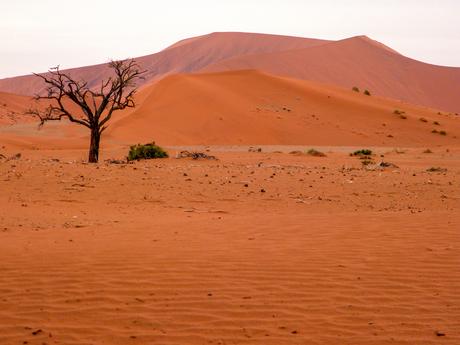
Top Destinations to Visit:
- Etosha National Park: Known for its diverse wildlife, including elephants, lions, and rhinos, this park offers excellent game viewing opportunities.
- Namib Desert: Explore the otherworldly landscapes of Sossusvlei, Deadvlei, and Dune 45, where towering red dunes stretch as far as the eye can see.
- Fish River Canyon: The second-largest canyon in the world offers breathtaking views and excellent hiking trails.
- Swakopmund: A coastal town known for adventure activities, including sandboarding and quad biking in the dunes.
- Damaraland: Discover ancient rock engravings, visit the Petrified Forest, and spot desert elephants.
- Spitzkoppe: An enormous granite outcrop rising dramatically out of the desert.

